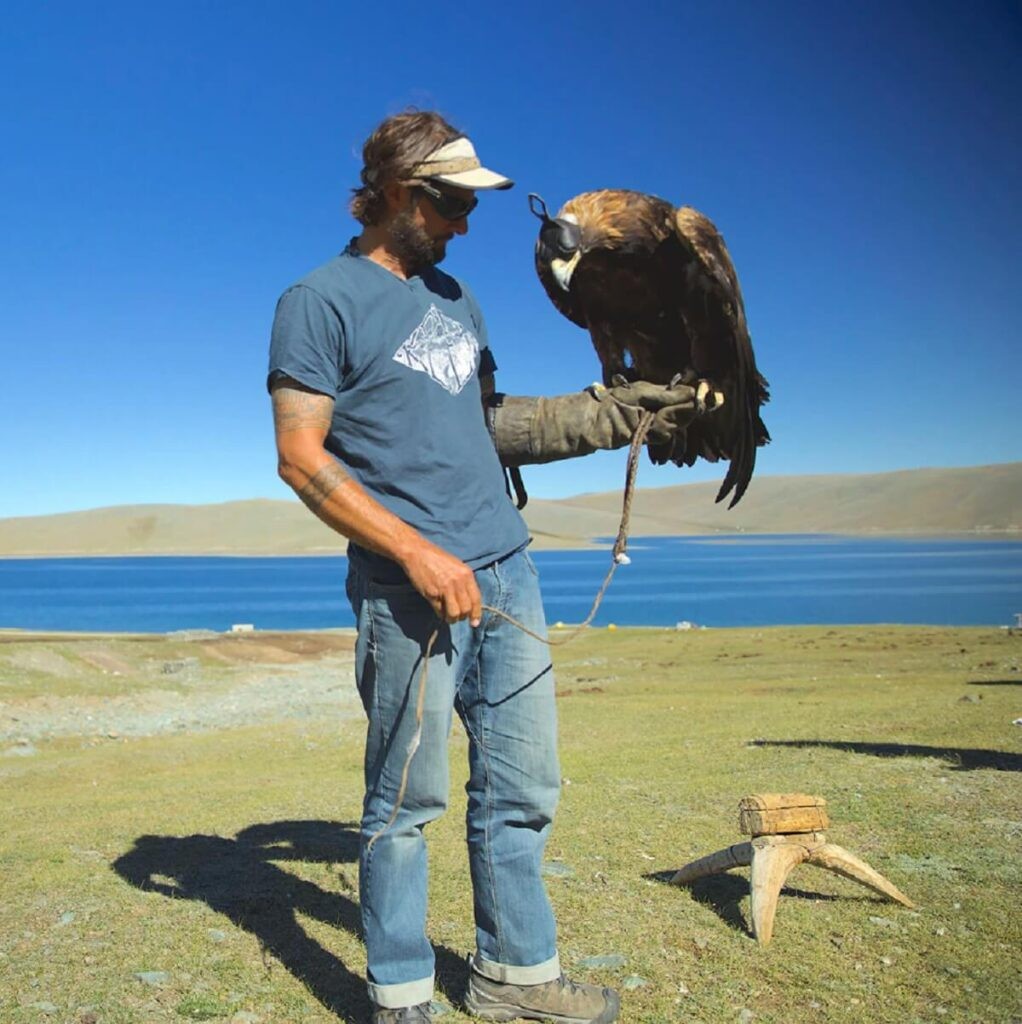Eagles, with their breathtaking wingspans and commanding presence, embody the spirit of the wild. These magnificent birds of prey have long captured human fascination, symbolizing freedom, power, and majesty. This allure naturally leads to the question: Can You Have Eagles As Pets?
While the idea of owning such a regal creature might be captivating, the reality of keeping an eagle as a pet is far more complex and, in most cases, simply not possible. Let’s delve into the legal, ethical, and practical aspects of eagle ownership.
The Legal Barriers to Pet Eagle Ownership
From a legal standpoint, the answer to “can you have eagles as pets?” is a resounding no in almost every part of the world. Eagles are not domesticated animals like cats or dogs. They are wild creatures that require specific environments and care that are fundamentally incompatible with typical pet ownership.
Most nations have stringent laws in place to protect these birds. In the United States, for example, eagles, along with other migratory birds, are protected under the Migratory Bird Treaty Act. Similar legislation exists in many other countries to safeguard native bird species and prevent their exploitation. Owning an eagle without proper authorization is a serious offense, often carrying hefty fines and legal repercussions.
The primary reasons for these legal prohibitions are rooted in conservation and animal welfare:
- Conservation: Eagle populations, while stable in some areas, have faced historical declines due to habitat loss, hunting, and pesticide use. Protecting them in the wild is crucial for maintaining biodiversity.
- Animal Welfare: Eagles have highly specialized needs. Their natural behaviors, dietary requirements, and spatial needs cannot be met in a typical domestic setting. Confining them to a home environment would be detrimental to their physical and psychological well-being.
However, there are very limited exceptions where keeping eagles is permitted, but these are far removed from the concept of “pet ownership.”
Legitimate Eagle Ownership: Exceptions to the Rule
While keeping eagles as pets is illegal, certain entities and individuals may be authorized to house eagles under specific circumstances and strict regulations. These exceptions are typically for conservation, education, or cultural purposes, not for personal companionship.
- Zoos and Wildlife Sanctuaries: Accredited zoos and wildlife sanctuaries play a vital role in conservation and education. They may house eagles for breeding programs, research, and public education. These institutions have the resources and expertise to provide appropriate care for these birds in controlled environments that mimic their natural habitats as closely as possible.
- Rescue and Rehabilitation Centers: Licensed wildlife rehabilitators and rescue centers are permitted to care for injured or orphaned eagles with the goal of releasing them back into the wild. These centers provide temporary care and medical treatment, playing a crucial role in conserving wild eagle populations.
- Master Falconers: In some countries, including the United States, individuals can become licensed falconers. Falconry is an ancient art of training birds of prey for hunting. Achieving the status of a Master Falconer is a long and rigorous process, and even then, it doesn’t equate to pet ownership.
The Path to Becoming a Master Falconer and Eagle Acquisition
Becoming a Master Falconer is a serious commitment, demanding years of dedication and adherence to strict regulations. It’s a journey focused on conservation and the traditional practice of falconry, not pet keeping. The typical progression involves:
- Apprenticeship: Aspiring falconers must begin as apprentices under the guidance of a General or Master Falconer for a minimum of two years. During this period, they learn the fundamentals of raptor care, training, and falconry practices, often starting with species like hawks or falcons.
- General Falconer: After the apprenticeship, individuals can become General Falconers. At this stage, they are permitted to possess and train certain raptors, typically smaller species, and gain more experience in falconry techniques.
- Master Falconer: After at least five years as a General Falconer, individuals can apply to become a Master Falconer. This advanced level requires extensive experience and knowledge of falconry.
- Eagle Permit: Even as a Master Falconer, acquiring an eagle is not guaranteed. A separate and often challenging application process is required to obtain an eagle permit. This permit is granted only under specific conditions and for falconry purposes, not for simply keeping an eagle as a pet. Regulations often dictate the species allowed, such as golden eagles, and the number of eagles permitted, typically limited to a maximum of three.
It’s crucial to understand that even for Master Falconers, the relationship with an eagle is not one of pet and owner. It’s a partnership based on mutual respect and training for a specific purpose within the bounds of strict legal and ethical guidelines.
Mongolian Eagle Hunters: A Cultural Tradition, Not Pet Ownership
The tradition of eagle hunting in Mongolia, particularly among the Kazakh people in western Mongolia, is often cited in discussions about eagle ownership. This ancient practice is a deeply ingrained cultural heritage, where golden eagles are trained for hunting, primarily during the winter months.
Mongolian eagle hunters, known as berkutchi, develop an extraordinary bond with their eagles. However, this relationship is distinct from pet ownership. The eagles are working partners, essential for hunting in the harsh Mongolian landscape. They are not kept as pets for companionship.
The annual Golden Eagle Festival in Olgii, Mongolia, showcases the incredible skills of these hunters and their eagles, highlighting the cultural significance of this tradition. It is a celebration of heritage and the unique partnership between humans and eagles in a specific cultural context.
It’s important to recognize that even within this tradition, the eagles are not domesticated. They retain their wild instincts and are trained for a specific purpose within their natural environment. This cultural practice should not be misinterpreted as condoning or suggesting the feasibility of keeping eagles as pets in a typical domestic setting.
Conclusion: Eagles Belong in the Wild
In conclusion, while the allure of having an eagle as a pet is understandable, the reality is that it is neither legal nor ethical in almost all circumstances. Eagles are wild animals that require specialized care and environments that cannot be provided in a typical home.
The legal restrictions surrounding eagle ownership are in place for crucial reasons: to protect these magnificent birds and to ensure their well-being. Exceptions for zoos, rescue centers, and master falconers exist for conservation, education, and cultural preservation, not for personal pet ownership.
Instead of seeking to own an eagle, we can appreciate these incredible creatures in their natural habitats, support conservation efforts, and learn from cultural traditions like Mongolian eagle hunting, which demonstrate a respectful and purposeful partnership with these birds in their wild environment. Eagles are a vital part of our planet’s biodiversity and deserve to thrive in the wild, not as pets.

